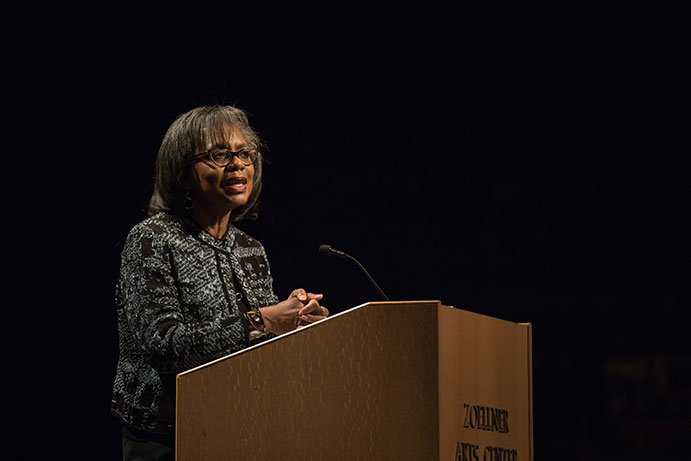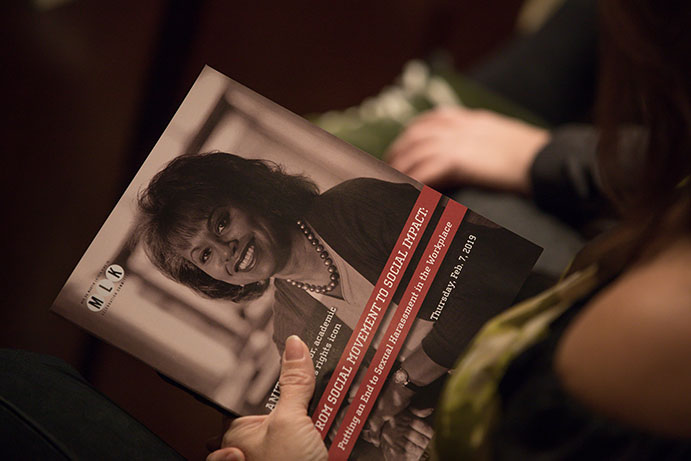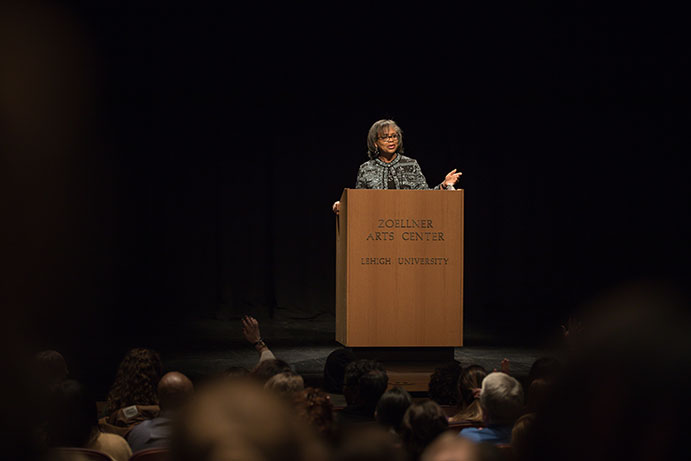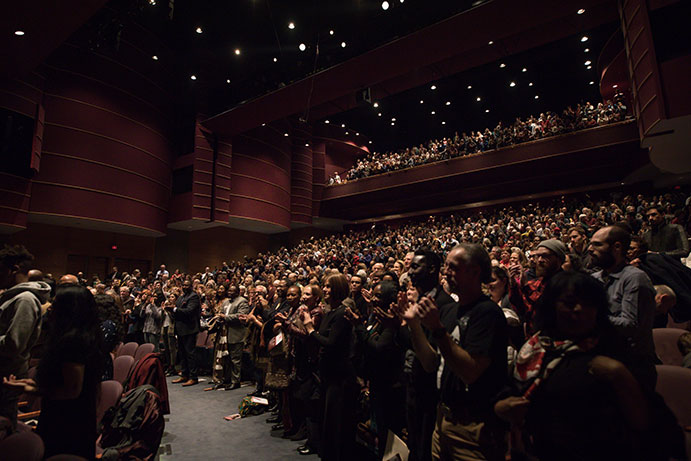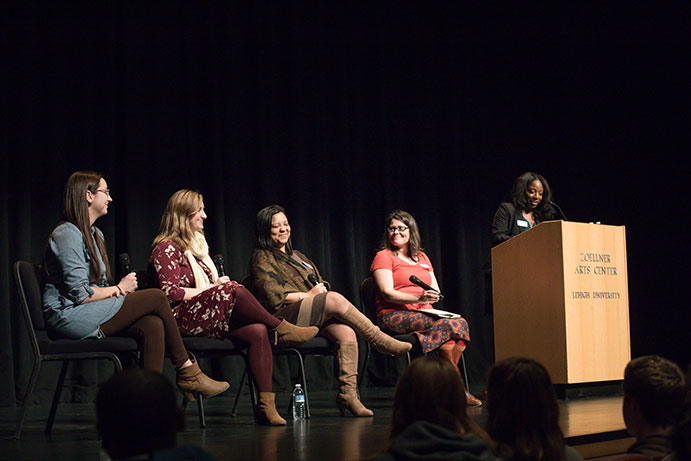Hill said she was initially buoyed by the social progress and cultural change that was ushered in through the 2017 #MeToo movement. “It felt like we were moving toward a better future, that as a society, we were actually waking up to the reality of gender violence. I had no idea that a few months later, we would be jolted back. I turned on the TV and I saw history repeating itself. I run into so many people—when I’m out shopping, even with the TSA agent at the airport today—who feel so dejected and disappointed by what happened. But I tell them, and I am saying to you, I’ve been on this path 27 years and that Kavanaugh hearing will not cause me to retreat.”
While she said she is encouraged by shifting cultural norms that now provide space for women to come forward and recognize “that we are entitled to be heard,” she is concerned that progress continues to be threatened by a broad societal denial of gender violence. In fact, she said, we’ve built policies around the myth that sexual assault only occurs at the hands of a menacing stranger. “We know now that it more often comes from a friend, a neighbor, a family member,” she said. “We must begin to erase the vestiges of those times and that thinking that remains today —in our legal system and in our culture.”
We must also, she said, challenge our leaders who are less concerned with justice and progress than they are with political power, status and control.
“We need to stand up to this, because what our government counts and collects information about is what our government cares about and what they will act on,” she said. “Do they really care about gender violence? All the signals are, no, it’s not a priority.”
Throughout the Kavanaugh hearings, Hill said that hundreds of people reached out to her, expressing their rage, their frustration and their feelings of betrayal. She often found herself encouraging others not to embrace despair, but to use that moment to motivate themselves and others to engage more fully.
“With the independence of the highest court called into question, we are at a pivotal point in the history of our republic,” she said. “Our democracy is suffering. But we don’t need to wait for our government to lead. We can start today. We are all here today because we care—I know you could be somewhere else tonight. We all have to be engaged in this fight, and that includes men, too, who can be victims of sexual violence. We can use this moment in history. We can teach, we can challenge false assumptions, we can learn, we can demand our government do better.
“We can be the change—you’ve all heard that,” she continued. “Well, we’ve got to DO the change too. And we must.”
Examining Sexual Harassment and Gender Violence
The evening’s event was opened by Dahlia Hylton, director of Lehigh’s Office of Multicultural Affairs and co-chair (with Chris Burke, associate professor of psychology) of the university’s MLK Committee. Hylton briefly discussed the committee’s commitment to the topic of Race X, which examines intersectionality between race and other pressing contemporary issues: voting rights, climate change, gender violence and sexual harassment, among others. Hylton then introduced Stephanie Powell Watts, the acclaimed writer and associate professor of English, who cited King’s words following the events of Bloody Sunday in Selma, Alabama: “A man dies when he refuses to stand up for that which is right. And man dies when he refuses to stand up for justice. A man dies when he refuses to take a stand for that which is true.”
“I don’t know a better way to describe Anita Hill,” Watts said. “Her courageous testimony has inspired so, so many of us. And with this inspiration comes hope and belief.”
Hill was met with a standing ovation at the start of her talk and again at the conclusion. She returned to the stage to respond to several questions from the audience on topics that included sexual harassment in the workplace, the current polarized political climate and the issue of term limits—prompted by her observation that some of the same legislators at the recent Kavanaugh hearings were present at the Thomas hearings in 1991.
“People do stay around too long—that’s true,” she said in response to a question from an audience member. “But I don’t want Ruth Bader Ginsburg to go anywhere. I don’t think term limits are the answer. I think voting is the answer. Full engagement is the answer. To all the young people, please, please stay politically engaged.”
Since travel issues delayed Hill’s arrival at Lehigh, a panel of Lehigh experts was assembled to further educate the audience about issues related to sexual harassment and gender violence. The discussion was led by Rita Jones, director of Lehigh’s Center for Gender Equity; and included Brooke DeSipio, assistant dean and director of Lehigh’s Center for Gender Violence Education and Support; Clara Buie, associate director of Multicultural Affairs; and Emily Rieser, senior outreach educator of the Crime Victims Council of the Lehigh Valley.


